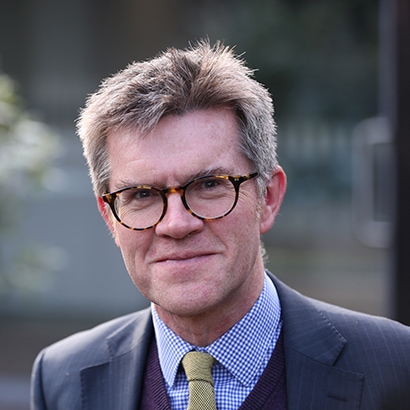Are politicians being led by the science, guided by the science, or ignoring the science?
What is the right way to align policy decisions that literally have life and death consequences and need to be taken now when the evidence base is evolving and incomplete?
This issue is of course not new, even though the stakes and visibility have rarely been so high. It has been a growing focus for governments, universities and funders for some years, in the UK at least driven by a recognition that way research was rewarded and academic careers built did not encourage this sort of connection.
In the UK and elsewhere translation of research into policy is now an activity supported and rewarded. But making the connection work is not just an issue of getting the financial incentives right.
A “broker”, someone to facilitate the connection has been seen as part of the answer, with universities establishing policy facing functions and Institutes like the one I lead at Nottingham.
The new head of UKRI, Ottoline Leyser, has talked about the importance of this role in her vision of a healthy research landscape.
This was the driver for the creation of the Universities Policy Engagement Network (UPEN), which it has been my privilege to chair for the last 18 months. Back in 2018, with Gavin Costigan as chair and driving force, UPEN brought together policy facing functions at 10 universities to share good practice and be a cross-university voice with whom policymakers could engage.
Since then our membership has grown to 75, with members drawn from all four nations and every variety of higher education institution, and with active participation not just from universities but also from government departments, funders and Parliament.
Priorities
UPEN’s work has concentrated on three things.
The first has been building the sector – sharing good practice across functions often developing from scratch and hugely varied in size and shape, from impact managers who have policy impact as a portion of their job, to the large policy institutes in Kings, Cambridge and elsewhere. We are all learning, and on the basis that a rising tide floats all boats we see a mutual benefit in building sectoral capacity, even if the incentive structures created by the REF mean we are also in competition.
The second has been to provide a “one stop shop” for policymakers to draw on more easily expertise in universities. As I know from my time working in Whitehall, it is often easier to round up the usual suspects than to identify new voices, particularly if you are working at pace.
By using UPEN as a vehicle to share calls for insight, policymakers know that the call will be sent to people whose job it is to put it in front of the right academics, and to support those academics to provide their insight in a form that policymakers can use.
The third ambition has been not just to respond to make the status quo function better, but to critically reflect on and reshape the exchange between policy makers and researchers.
Last year we published a paper outlining UPEN members’ experiences engaging with Government Departments’ Areas of Research Interest (ARI). We argue ARI should be a starting point for a dialogue to understand priorities and shape research questions rather than as a one-off, one-way list of questions to answer.
This has led to a number of promising collaborations with a number of departments. We were also very pleased to be able to work with the Government Office for Science and their ESRC funded ARI fellows Professor Annette Boaz and Dr Kathryn Oliver on the “Rebuilding a Resilient Britain” project. We helped them identify and convene researchers from across the UK to develop a set of ARI looking thematically and cross-government at the challenges of recovering from the pandemic, the results of which can be found on our website.
We have also been looking at EDI issues in policy engagement, exploring the extent to which current (or perhaps better, pre-pandemic) modes of engagement create obstacles which mean policymakers aren’t benefiting from the full range of expertise in UK universities. We will be saying more on this in the coming months.
Understanding
The last year has been one in which the enormous contribution the UK’s universities make nationally and globally has been demonstrated time and time again, most obviously but not just in the development of therapies and vaccines to help manage the pandemic.
Hopefully one consequence of this is a better understanding in both government and universities of how evidence can be used to make better policy (there isn’t space to reflect here on what these might be but here are some thoughts from May last year).
A strong cadre of people whose role it is to understand, navigate and critically reflect on the interface between the academy and policymaking is going to be vital to making this relationship work. UPEN, under its new chair Professor Matt Flinders of the University of Sheffield, working with others such as www.cape.ac.uk and the new ESRC funded Policy Observatories, will play a significant role in this.













